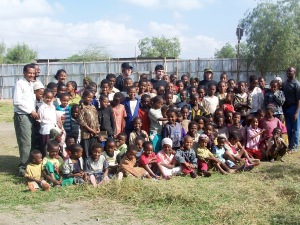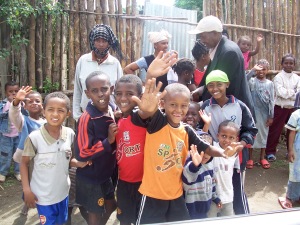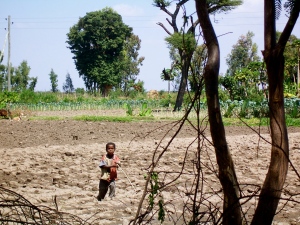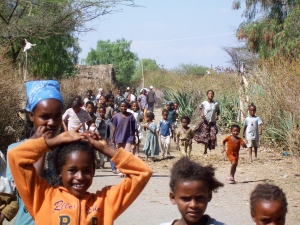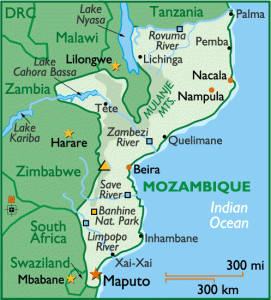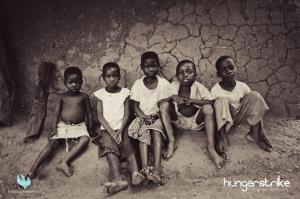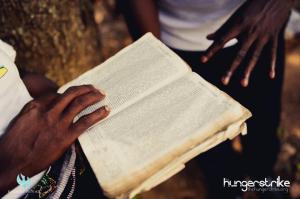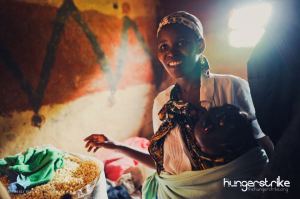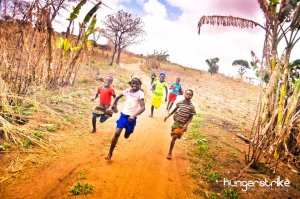Some will argue that The Hunger Strike would not be in existence if it wasn’t for the band WILLET taking a trip to Ethiopia in 2007. The Lord used that trip to work mighty things in the hearts of Jeremy, Jordan, and Justin, and out of those workings came the vision for The Hunger Strike and impacting global poverty with the Gospel. Ever since that time, Ethiopia has held a special place in the hearts of our staff, including leading Jeremy and Kathleen to start the adoption process from Ethiopia in 2010. Just as we pray for their son, who is still in Ethiopia, we ask that you pray with us for this beautiful country in this month’s Church Condition Report.
Ethiopia, a monarchy for most of its existence, was one of only 2 nations to maintain sovereignty during the scramble for Africa, one of only four African countries to be a member of the League of Nations, and one of the founding members of the United Nations. It is the most populated landlocked country in the world, and the second most populated African nation. It is now considered a democracy, though most recent elections have been met with heavy scrutiny from international observers and have fallen short of most widely accepted standards for “free and fair elections”.
Ethiopia boasts one of the fastest growing economies in the world, with over a 10% economic growth from 2004-2009. This, however, has come under fire recently with the double threat of high inflation and payment balance issues. Even with more recent struggles, Ethiopia can definitely be considered one of Africa’s most economically stable countries.
The religious demographic breakdown of Ethiopia is very diverse- while the majority of Ethiopians claim to be Christians (62.8%), over ⅓ of the population are Muslim (33.9%). There have been, at times, significant Jewish populations as well, though most of these have continued on to Israel in recent years. In addition, Ethiopia is the spiritual homeland of Rastafarianism. there are, of course, many people who practice traditional African religions as well (2.6% of the population). In general, Christians live in the highlands of Ethiopia, while Muslims and traditional African religionists live in lower lands of the country.
Life in Ethiopia, especially for those in rural poverty, can be a pretty grim picture. Around 16% of the population lives on less than $1 a day, and only 65% of rural households consume the WHO’s minimum standard of food intake per day (2,200 calories). 45% of children under the age of 5 are underweight, and 40% of them sleep on the floor. Many families share sleeping quarters with their livestock. Poverty in Ethiopia, unfortunately, is a deplorable cycle- because land holdings are so small, it is difficult to work the land into fertility, or to make enough money in excess produce to be able to buy more land or make the land you are working more fertile. Cultural necessities, such as burning manure for fuel rather than tilling it into the soil, leave the land even more depleted of nutrients. Livestock yields, especially milk, are then less than desirable because of the lack of nutrition being received by the livestock.
Urban Ethiopia is not much better- sanitation is a big problem, and most people (55%) live in slums without access to waste treatment facilities and rarely a home with a floor. However, 69% of children in urban areas are enrolled in some type of education facility, with 35% eligible for secondary school. The literacy rate, in urban Ethiopia, is a respectable 82%.
Health concerns in Ethiopia are numerous: like many countries in Africa, the spread of AIDS is pandemic and effects most of the female and impoverished populations. Along with the spread of AIDS, waterborne illnesses and other diseases due to poor sanitation and malnutrition are common. On the whole, infant and maternal death rates are very high in Ethiopia, though they are generally lower in the cities, where a higher percentage of women have access to professional healthcare and hospitals in which to give birth. In rural Ethiopia, a vast majority of births take place at home and are attended by an elderly midwife, who assists in the birth. Many common medical complications of birth can become life-threatening in a rural circumstance. However, infant death rates have dropped from a shocking 16% in 1965 to a still-unsettling 8% currently.
Join us this month in praying for the people of Ethiopia:
-Pray for missionaries serving there, that they would understand the culture and be sensitive to how best to represent the Gospel.
-Pray for knowledgeable health workers to be trained in Ethiopia and be made available to the public, especially in rural areas.
-Pray for government funding to be allocated properly, especially in waste management and sanitation services.
-Pray for the infant mortality rates to continue to drop.
-Pray for fertility in the land, good crop yields, and good economic and agricultural decisions to help break the cycle of poverty in rural Ethiopia.
-Pray that more children would be able to attend school, and that the literacy rate would continue to rise.
-Pray for truth and love to be properly articulated by the Ethiopian church, especially to the prevalent Muslim population.
-Pray for the church to lead the way in education, sanitation, health standards, generosity, and standing up for the justice of the people.
